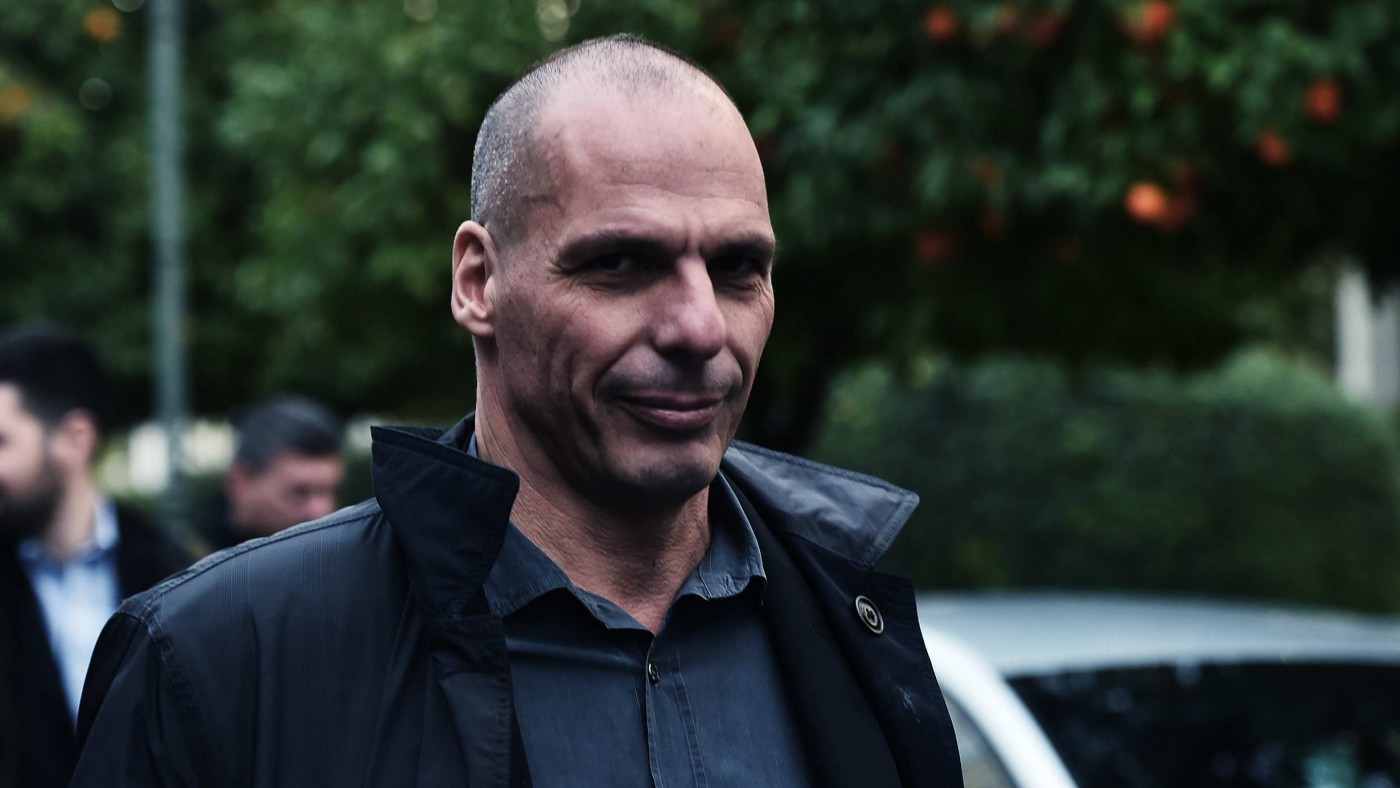Yanis Varoufakis isn’t playing games. He’s been very clear about that. The Greek finance minister, whose resumé includes teaching Economic Theory at the University of Athens and designing the virtual economy of online gaming platform Steam, is not using game theory to gain the upper hand in negotiations between Greece and the European Troika. He wants you to know this, which is why he wrote an op-ed for the New York Times explaining that now is no time to be messing around “devising bluffs, stratagems and outside options, struggling to improve upon a weak hand”. The situation is too serious for that. Now is the time to be honest, to compromise, and to “place the common European good above petty politics”.
Okay, so Syriza is ready to be serious then, to sit at the grown-ups’ table and try to work out a way to get Greece back on track with the support of the rest of the Eurozone. That seems to be what Varoufakis is saying:
“As finance minister of a small, fiscally stressed nation lacking its own central bank and seen by many of our partners as a problem debtor, I am convinced that we have one option only: to shun any temptation to treat this pivotal moment as an experiment in strategizing and, instead, to present honestly the facts concerning Greece’s social economy, table our proposals for regrowing Greece, explain why these are in Europe’s interest, and reveal the red lines beyond which logic and duty prevent us from going.”
Powerful stuff. So what exactly are Syriza’s proposals for regrowing Greece? Varoufakis is slightly more vague on this point:
“…the new Greek government will innovate…. No more loans — not until we have a credible plan for growing the economy in order to repay those loans, help the middle class get back on its feet and address the hideous humanitarian crisis. No more “reform” programs that target poor pensioners and family-owned pharmacies while leaving large-scale corruption untouched.”
This is a wonderfully optimistic version of the policies on which Syriza ran in last month’s election, which included increasing in the minimum wage by 29.5%, and re-instituting the Christmas bonus for pensioners receiving less than a monthly €700. 300,000 new jobs were also promised (though it was not made clear where they would come from), as was an increase in fuel and food subsidies.
All this was to be paid for by increasing top rate income tax and corporation tax (though of course these would supposedly have no impact on job creation) and by closing tax loopholes. “We will stand up to the tax-evading economic oligarchy”, wrote leader Alexis Tsipras in the Financial Times the week before the election.
Now we are starting to have an idea of where these jobs will come from – the Syriza government, of course. As tweets from Simon Nixon of the Wall Street Journal show, Syriza’s plan appears to be mistaking enacting labour ‘reform’ with hiring more state employees:
@Simon_Nixon @SonyKapoor Also, can you tell me how hiring 600 cleaning ladies in ONE ministry makes any sense? Is that SYRIZA reforming?
— L for Logic (@seed30_Greek) February 17, 2015
Yes, one of the first acts of the new Syriza government was the re-hiring of the 600 cleaning ladies at Greece’s finance ministry, who had been protesting austerity since they were laid off in September 2013 to save money. Dealing with Greece’s 25.8% unemployment by creating hundreds of government jobs without the state funds to pay for them is hardly the kind of reform the other Eurozone nations, especially Germany, were hoping to see. Simon Nixon has some other thoughts on how Syriza is planning to “innovate” and save pensioners:
This is what Tsipras fighting to protect RT @ekathimerini: Four in 10 new pensioners aged under 62 http://t.co/is1NSND0fP
— Simon Nixon (@Simon_Nixon) February 17, 2015
These out-of-date pension policies are literally creating incentives for those who could work not to, reducing the size of the Greek workforce, and increasing the number of state dependents at the cost of younger generations.
And what about closing the tax loopholes which have contributed to crippling the Greek economy?
If Tsipras serious about tackling tax evasion and corruption he will reform VAT which is riddled with loopholes. Has he announced that yet? — Simon Nixon (@Simon_Nixon) February 17, 2015
Yes, I knew RT @egrammes: @Simon_Nixon Actually SYRIZA is against any change on VAT system http://t.co/rXaJiHZVQm
— Simon Nixon (@Simon_Nixon) February 17, 2015
With all this in mind, it is hard to see what great innovative reforms the Syriza leaders think will bring Greece back from this crisis point, or what they have to offer the EU, ECB and IMF in return for restructuring their €315 billion debt. This is why the hardline Germans have refused to give in to any of Syriza’s requests: they know that, whatever nice words Tsipras and Varoufakis might use, they are simply not willing to make any of the reforms needed to return Greece to fiscal stability.
Yanis Varoufakis is not being honest when he talks of how Syriza will “bring back growth” for Greece. It looks like now is the time bluffing, stratagems and game theory after all.


